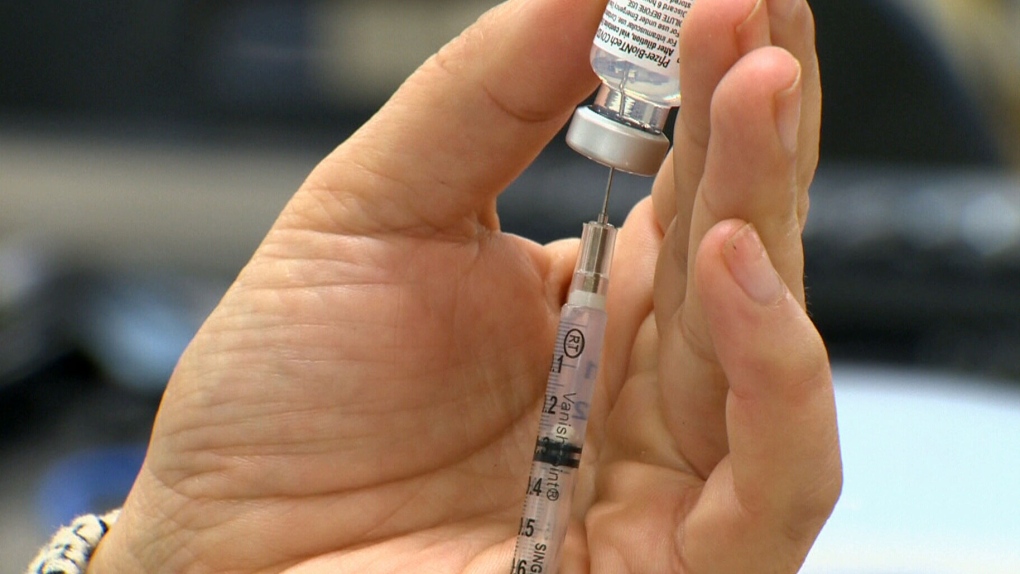Vaccine proof now required for employees at Revera long-term care homes

Workers at one of Canada’s largest long-term care home operators are now required to show proof of vaccination against COVID-19.
A spokesperson for Revera confirmed with CTV that a new policy, which came into effect on July 1, says all staff working at care homes owned and operated by the company need to be vaccinated, except when impossible due to medical exceptions.
“Revera expects that all staff be vaccinated against COVID-19 if they are able and will request a documented medical reason from those who are not,” the spokesperson wrote in a statement.
Unvaccinated staff at Revera are required to undergo daily testing, and requirements for personal protective equipment will remain in place even when no longer mandated by public health authorities.
The company added vaccination will be a condition of employment for new hires, except when impossible due to “legitimate, established exceptions.”
“We are grateful to the many staff who have already been vaccinated, and to our union partners who have supported and encouraged staff vaccinations,” the spokesperson said. “This policy is one more important step to protect both our residents and staff as we continue to battle this deadly virus, particularly the emergence of several variants of concern.”
Two care homes owned by Revera in Winnipeg were the sites of two of Manitoba’s deadliest outbreaks; Maples Personal Care Home and Parkview Place.
The Maples Personal Care Home had the deadliest COVID-19 outbreak at a personal care home, with the deaths of 55 residents linked to COVID-19. During the outbreak, 62 staff members and 153 residents tested positive for COVID-19.
The COVID-19 outbreak at Parkview Place also was one of the deadliest in the province, with the deaths of 29 residents linked to COVID-19. There were 39 staff and 119 residents who tested positive during the outbreak.
CTVNews.ca Top Stories

'It could be catastrophic': Woman says natural supplement contained hidden painkiller drug
A Manitoba woman thought she found a miracle natural supplement, but said a hidden ingredient wreaked havoc on her health.
After hearing thousands of last words, this hospital chaplain has advice for the living
Hospital chaplain J.S. Park opens up about death, grief and hearing thousands of last words, and shares his advice for the living.
WHO likely to issue wider alert on contaminated cough syrup
The World Health Organization is likely to issue a wider warning about contaminated Johnson and Johnson-made children's cough syrup found in Nigeria last week, it said in an email.
WATCH Video shows dramatic police takedown of carjacking suspects chased through parking lot north of Toronto
Police have released video footage of a dramatic takedown of a group of teens wanted in connection with an attempted carjacking in Markham earlier this month.
Canada, G7 urge 'all parties' to de-escalate in growing Mideast conflict
Canada called for 'all parties' to de-escalate rising tensions in the Mideast following an apparent Israeli drone attack against Iran overnight.
'It was all my savings': Ontario woman loses $15K to fake Walmart job scam
A woman who recently moved to Canada from India was searching for a job when she got caught in an online job scam and lost $15,000.
Families to receive Canada Child Benefit payment on Friday
More money will land in the pockets of some Canadian families on Friday for the latest Canada Child Benefit installment.
After COVID, WHO defines disease spread 'through air'
The World Health Organization and around 500 experts have agreed for the first time on what it means for a disease to spread through the air, in a bid to avoid the confusion early in the COVID-19 pandemic that some scientists have said cost lives.
American millionaire Jonathan Lehrer denied bail after being charged with killing Canadian couple
American millionaire Jonathan Lehrer, one of two men charged in the killings of a Canadian couple in Dominica, has been denied bail.
































